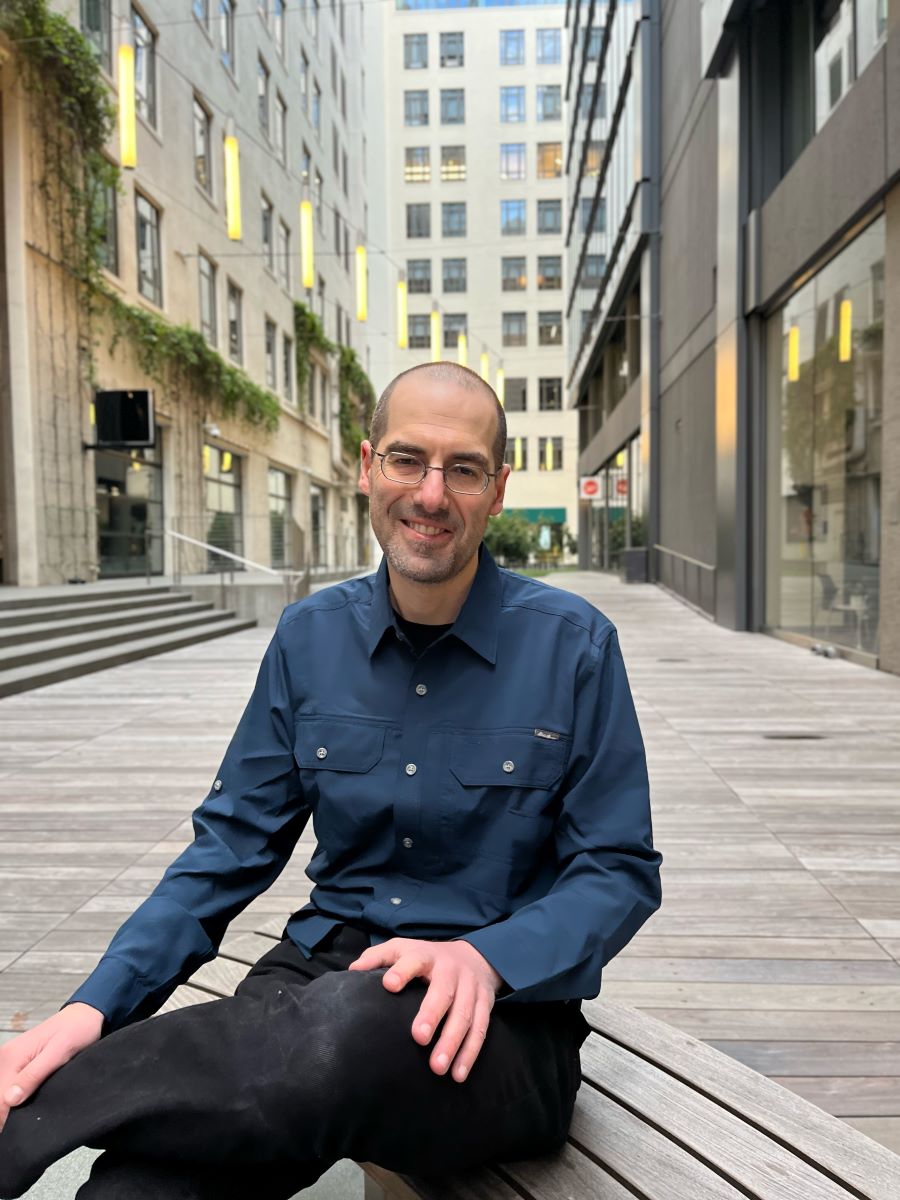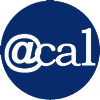
New Faculty Profile | Allon Wagner
At the Intersection of Computation and Biology
By Kirsten Mickelwait

Allon Wagner’s interests have always spanned both the sciences and linguistics. Before coming to UC Berkeley to pursue his PhD and postdoc in computer science with Nir Yosef, he earned two master’s degrees: one in computer science and the other in Near Eastern history and languages. These studies fueled a passion for translation that continues to inform his career, only now he studies two scientific languages: molecular biology and computational biology.
Wagner joined MCB on January 1 as an assistant professor of immunology and molecular medicine, holding a joint appointment with Electrical Engineering & Computer Sciences (EECS) and the Center for Computational Biology (CCB). Specifically, he works at the junction of computational single-cell genomics, immunology, and cellular metabolism. His lab develops data-driven algorithms to study metabolic dysregulation of immunity in cancer, autoimmunity, and other diseases.
Cellular metabolism regulates our immune system's response to pathogens, tumors, and tissue injury. When immune cells fail to mount the correct metabolic processes, it leads to an ineffective or even adverse immune response. For example, in autoimmune diseases like multiple sclerosis, dysregulated metabolic programs are one of the factors that turn the immune system on the body itself.
Wagner and his students develop computational approaches to infer the metabolic programs of single cells in our organs, how these cells metabolically interact with one another, and how these processes are dysregulated in disease. Wagner’s lab and collaborators use such in silico methods to study state-of-the-art transcriptomic, multiomic and spatial single-cell assays to achieve a systems-level understanding of metabolism.
The ways that single-cell genomics have changed biology can be compared to the development of the first microscope—we can suddenly collect a whole new universe of data and reveal an entirely new level of biology. Contrasting these new tools back to when he started his PhD, “It's like comparing a car to a horse-drawn carriage,” Wagner laughs. “And now, our goal is to develop the computational methods needed to take advantage of these new data worlds.”
Wagner collaborates with MCB faculty studying diverse subjects in immunology—such as Russell Vance, Ellen Robey, and Greg Barton—enabling them to look more deeply at the data generated in their labs. Data-driven work like Wagner’s can suggest new connections in genomic datasets that translate to new hypotheses, which his experimental collaborators can test in the lab, generating more data to analyze. This way, experimentation and computation support one another in deriving novel biological insights. One translational impact of such collaborations will ultimately be identifying metabolic enzymes that can be targeted for therapeutic purposes, for example, bolstering the immune response against tumors, or suppressing it in patients suffering from autoimmunity.
“I strongly believe in the integration of biological scientists and computational scientists,” Wagner says. “In our field, there are no longer projects led by just one investigator—these projects require multiple leaders.” For these collaborations to work, he says, all sides need to be able to speak with one another. “My lab, for example, brings computational expertise, but we’re versed in the language of immunology and comprehend the experiments and the biological contexts of our work.” It’s necessary to be “bilingual” across disciplines because Wagner’s work is to develop data-science approaches specific to biology's intricacies. “You can’t apply out-of-the-box data-science methods to genomic data because living cells are so unique.”
Such interdisciplinary collaboration is why Wagner holds his troika of joint appointments at Berkeley. And it’s also characteristic of the university’s vision for the future of science. “It's rare to have a place that’s so globally outstanding, both in computer science and in the immunological sciences,” Wagner says, “coupled with such a supportive ecosystem, as we do with the new College of Data Science (CDSS), the California Institute for Quantitative Biosciences (QB3-Berkeley), UCSF, and the Chan Zuckerberg Biohub. If I could imagine a best-case scenario for my particular field, this appointment would be it. How could I not take it?”
As he begins his teaching career, Wagner hopes to inspire future generations of students to be bilingual in both the biology and the computational sides, and he’s exploring how to bring those two disciplines closer together at the undergraduate and graduate levels. “How do you teach an MCB seminar with computational aspects in it?” he asks. “And how do you create a class that’s both effective and enriching for students from all three units—MCB, EECS, and CCB?”
Currently building his lab in Stanley Hall, he’s excited about the students that will join his group and the culture they’ll create together. He’s curious about the individual perspectives and new ideas they’ll bring to his work; “I say to every student who walks in that I want them to eventually tell me, ‘I have a better approach,’” he says.
Thinking toward where his discipline is headed, Wagner is curious to see how computation will accelerate discoveries in molecular biology and transform medicine as we know it. “Fifty years into the future, they’ll be looking at our medicine the way we look at the medicine of Pharaonic times,” he says. “And that future will come from the integration of computation and biology.”
Learn more about research in the Wagner Lab: allonwagnerlab.org
Banner image: Keegan Houser
Back to Main Spring 2024 Newsletter Page
| Connect With Us! | ||||
 MCB X |
 LinkedIn Postdocs, PhDs, or Undergrads |
 Cal Alumni Network |
 Give to MCB |
|
